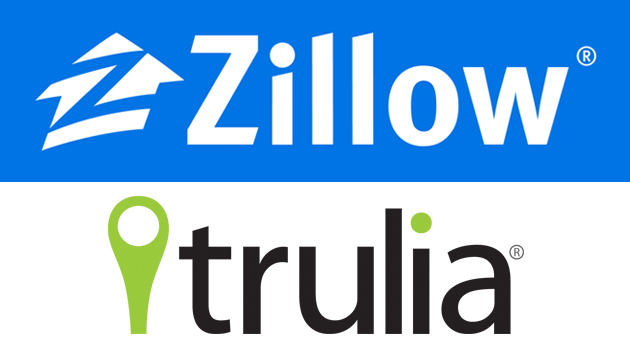July 28, 2014 was a watershed day in the real estate industry.
It was the day news hit the market that the two most popular real estate websites on the planet, Zillow and Trulia, announced they would merge via an acquisition of Trulia by Zillow.
Zillow and Trulia expect the acquisition to close in 2015.

Zillow stated on their website via a blog post that they expect to maintain both the Zillow and Trulia consumer brands given that both sites have large and loyal consumer followings with limited overlap.
On that very same day, Pete Flint, Trulia’s current CEO, sent an email to Trulia users in which he outlined Trulia and Zillow will continue to operate as separate and distinct brands even once the transaction closes.
Does It Matter to FSBOs That Zillow and Trulia Will Merge?
Not really, at least in the short term.
There’s commitment at the highest levels from both Zillow and Trulia that the two real estate websites will continue to operate as they do today, separate yet similar platforms.
With any merger like this, where two seemingly competitive firms desire to merge, the federal government will evaluate the merger deal largely on antitrust grounds. The way in which the Zillow and Trulia merger deal is contractually constructed, Trulia cannot make material changes to their business model during the merger evaluation period.
That said, FSBOs won’t see Trulia change until after the merger is approved by federal regulators.
So, what about longer term?
A classic business case analysis would yield that combining the two real estate website powerhouses would consolidate the online real estate listings market, but it’s really more about saving the eventual combined company millions in operating cost.
Those savings through efficiencies won’t be achieved for some time to come.
Realistically, Zillow and Trulia, from a systems and platform perspective, will continue to operate in silos for what will be years to come. Slowly, the two websites will begin to consolidate their respective systems and applications into single shared instances on the backend yet still continue to go to market under their separate and distinct brands.
Such underlying technology moves at large corporate entities are multi-month and multi-million dollar migration projects which don’t happen or pivot on a dime.
FSBOs will continue to enjoy the syndication of their flat fee MLS listings on both Zillow and Trulia as separate web entities for the foreseeable future, and when the merged company begins to slowly consolidate backend systems, FSBOs will continue to enjoy the same syndication reach but in and through websites that are operating more efficiently and who have more cash to spend to attract more buyer eyeballs.
In the short and long term, the ZIllow and Trulia merger is good for FSBOs who want to list on the MLS without a Realtor and have their property syndicated to the most popular real estate websites.
